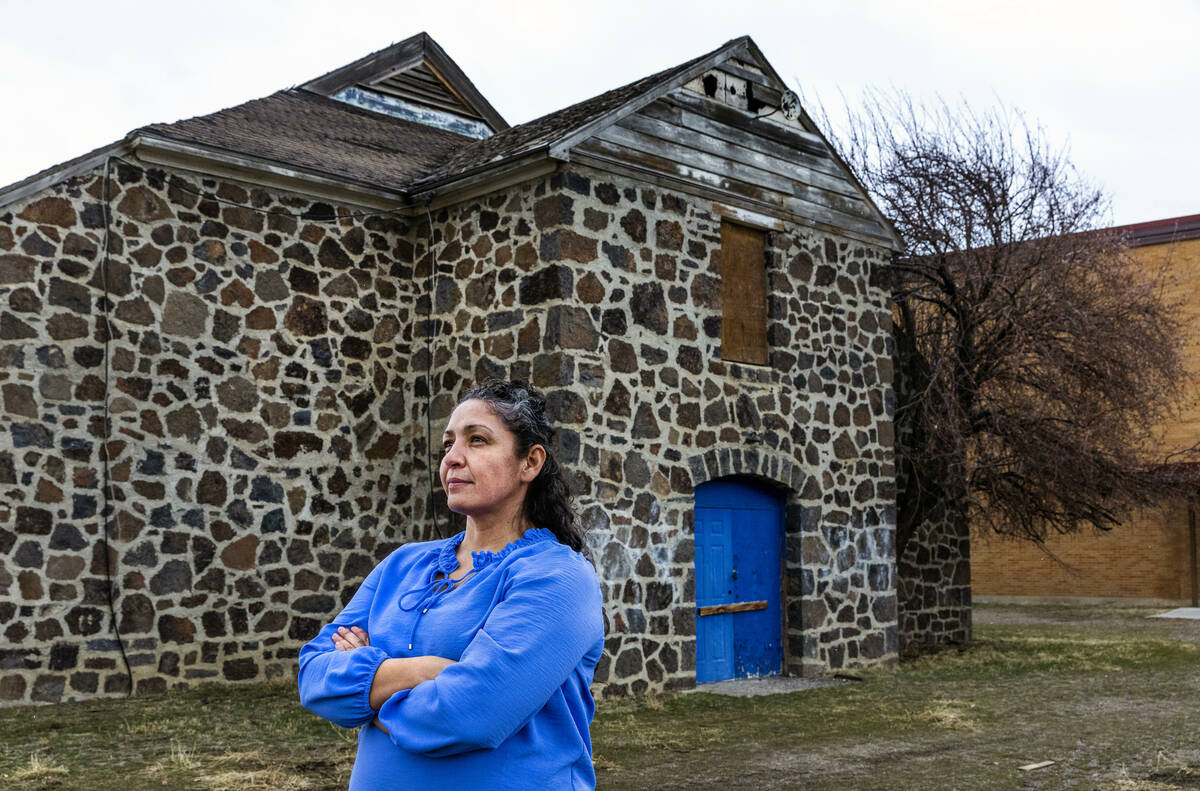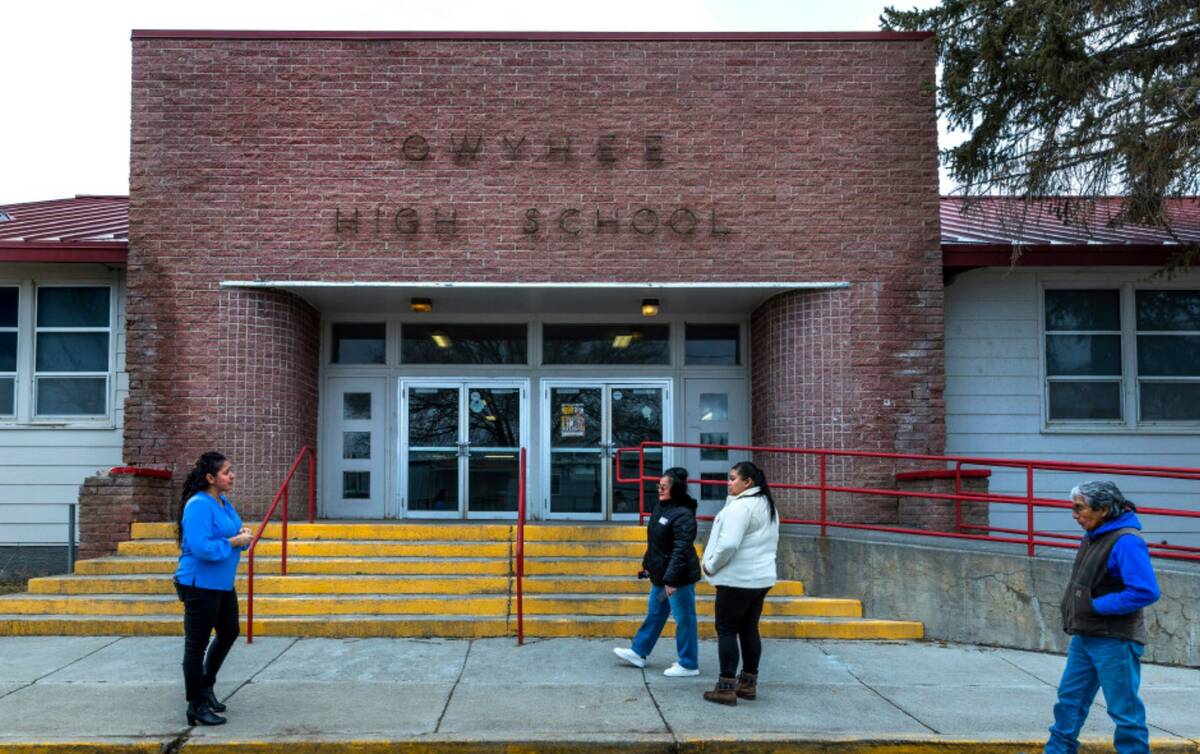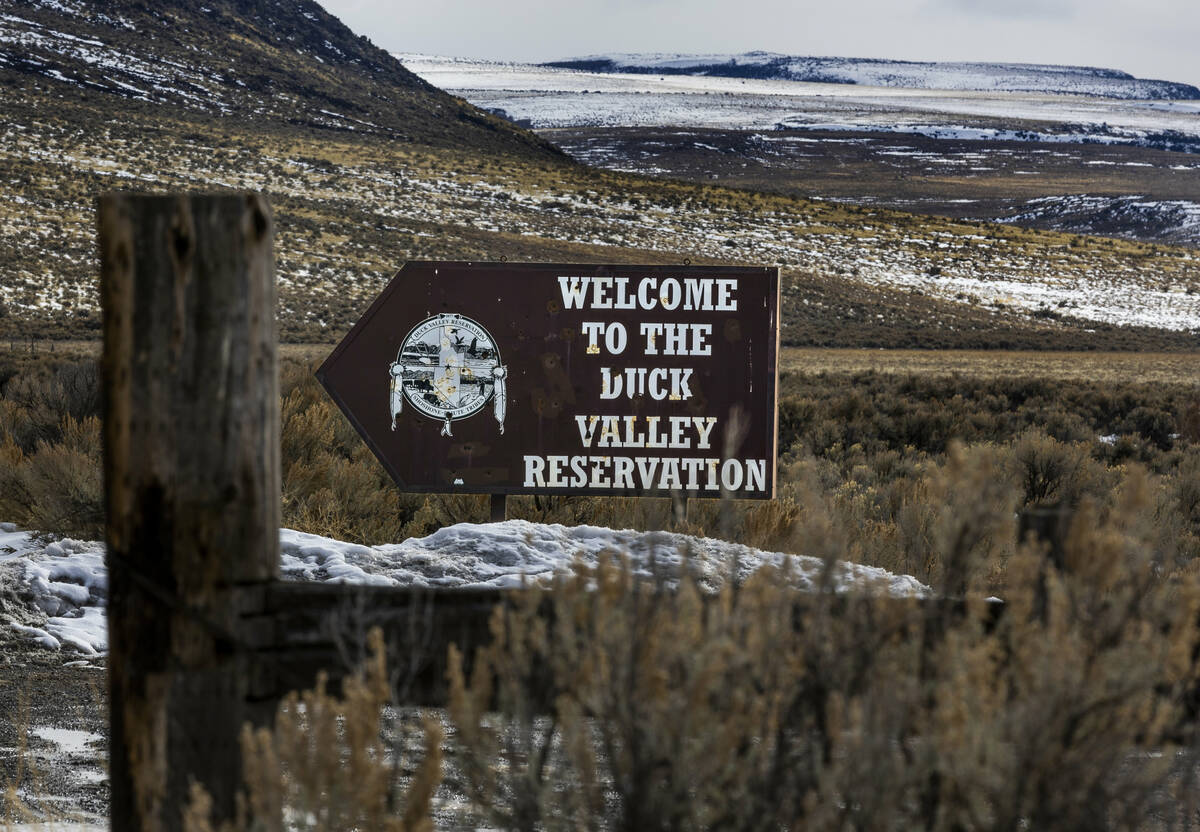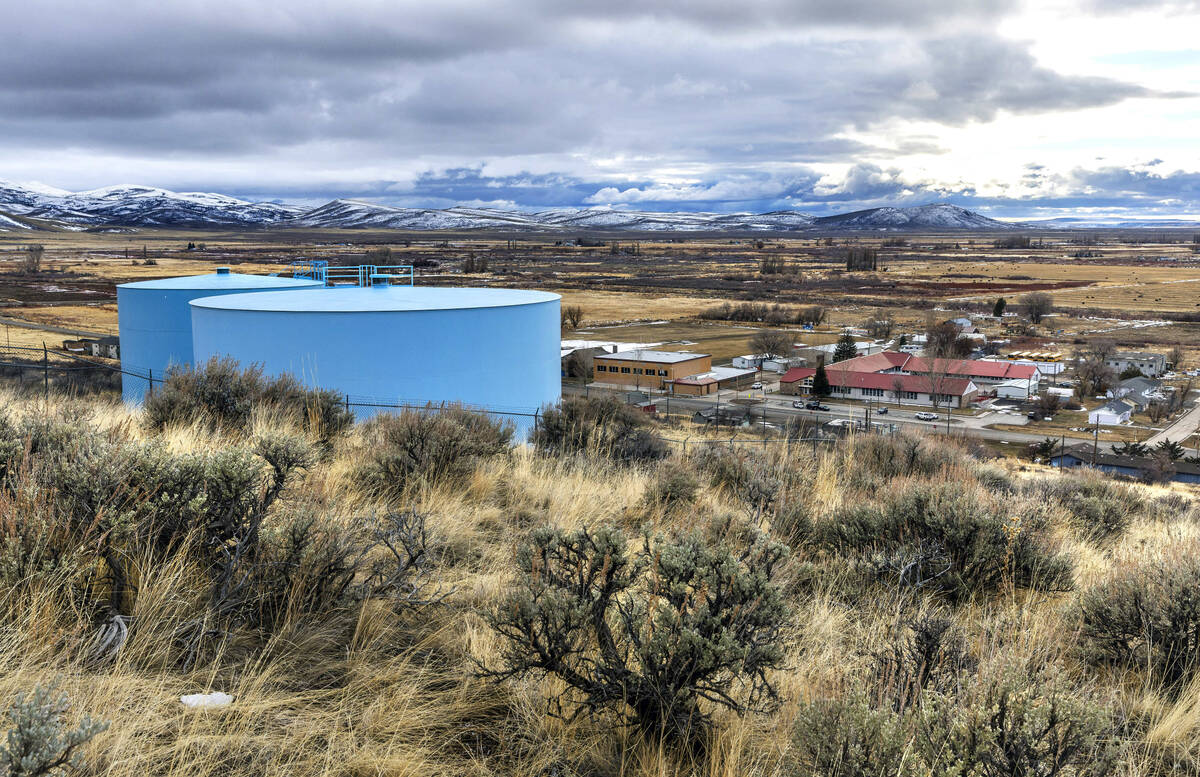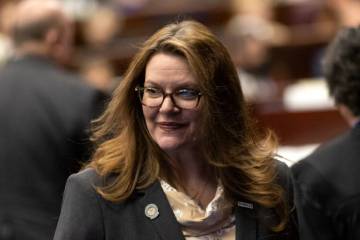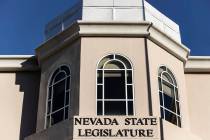‘A sense of pride’: Nevada tribe lands funding for new school
Leilani Thorpe felt ecstatic seeing a bill signed that will provide funding for a new school in Owyhee on the Shoshone-Paiute Tribes of the Duck Valley Indian Reservation.
“It’s gonna give our community and our children — my children — a sense of pride knowing that they’re actually important, you know?” said Thorpe, whose four children attend the Owyhee Combined School.
With school children, teachers and legislators behind him, Gov. Joe Lombardo signed Assembly Bill 519 on Tuesday afternoon, which allocates $64.5 million to replace a building from the 1950s that, in addition to being outdated, sits adjacent to a hydrocarbon plume that tribal leadership attributes to causing more than 100 cancer deaths over the years.
“The new Owyhee Combined School will mold scores of future leaders — Tribal, state, community, and maybe even the next United States Secretary of the Interior,” said Stacey Montooth, executive director of the Nevada Indian Commission at the bill signing ceremony.
Chairman Brian Mason hopes the new school will alleviate his community’s concerns about hydrocarbon plumes that lie underneath the town.
“Kids don’t have to worry about, you know, attending a school that is on a plume,” Mason said.
The new school
The new school will be built on 80 acres of land adjacent to one of the most populated subdivisions on the reservation.
It will be walkable for the majority of students and away from the highway, which was a major safety concern with the old school, said Lynn Manning John, the vice principal of the Owyhee Combined School and member of the Shoshone-Paiute Tribes of the Duck Valley Indian Reservation.
The facility will be modern with better technology and safety features, Manning John said, and it will be “inclusive of our culture, and built with that in mind, and welcoming for the whole child, the whole family and the whole community.”
Thorpe, who has had three family members die from cancer, hopes the new school will alleviate some of the community’s fears about carcinogenic hydrocarbon plumes. She wants to see testing done on the water underneath where the new school is, as well as more testing further upstream.
She also wants to see bigger classrooms, more reliable internet and more cultural implementation, such as Shoshone-Paiute words written on the walls. Thorpe also wants the new school to have greater security to account for the threat of school shootings.
“Having a place that is new to them and made for them I believe that it’s going to really help our students realize that education really is important,” Thorpe said.
The Shoshone-Paiute Tribes of the Duck Valley Indian Reservation will start the bidding process for contractors for the new school. The tribe is also working with the Bureau of Indian Affairs on conducting a health assessment and environmental assessment on the water under the reservation, Mason said.
Paving the way for rural schools
The first bill, pushed by Sen. Ira Hansen and Assemblywoman Alexis Hansen, R-Sparks, fell through the cracks, but the Owyhee Combined School was picked up again with AB 519.
The bill also paves the way to fund projects for rural schools across the state that may not have the tax base to fund schools locally. It creates a state fund with an initial $50 million that will be split in half for rural and tribal schools in Nevada for future projects. The state will match half of what the school is able to raise, said Will Adler, a principal of Silver State Government Relations who lobbied for the bill.
“I’m just so happy,” Thorpe said. “I’m glad that it’s gonna pave the way for other rural schools that, you know, could possibly use this as well. For Owyhee to be the first one, it’s amazing.”
Contact Jessica Hill at jehill@reviewjournal.com. Follow @jess_hillyeah on Twitter.
Other 2023 laws impacting tribes
Assembly Bill 73: allows for public school students to wear traditional tribal regalia at school graduation ceremonies. If a board of trustees of a school district prohibits an item that may cause disruption of a ceremony, the student can appeal that decision to the state superintendent of public instruction.
Assembly Bill 125: ensures that Indigenous people who go missing are included in the National Crime Information Center database.
Assembly Bill 84: requires the state to issue members of recognized Nevada tribes a free annual permit to visit state parks and recreation areas.



